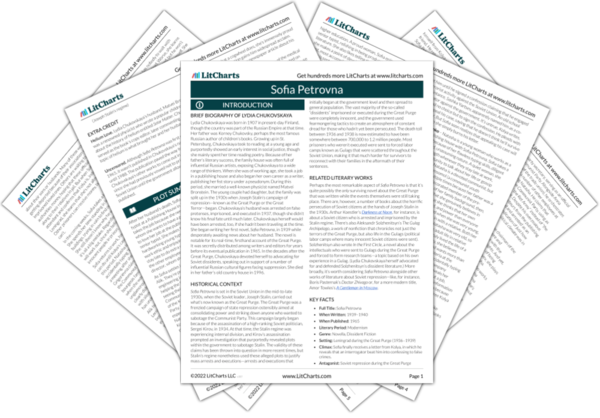At this point in the novel, everything is still going quite well for Sofia. There are some minor annoyances in her life, like the fact that Erna Semyonovna makes so many mistakes at work, but she’s mostly content with her existence. Similarly, Kolya and Alik are on track to become successful engineers and are quite pleased with their current circumstances. At this stage, then, the current landscape of the Soviet Union seems—for all intents and purposes—perfectly harmonious, showing few signs of the turmoil to come.
